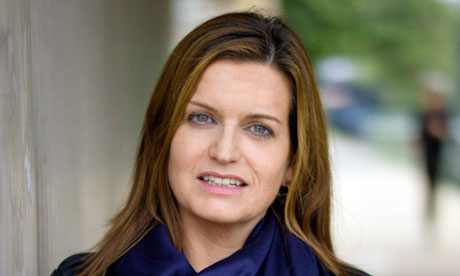
Just after Christmas, I was in a meeting at work when the floor began to spin. Thinking I had the dreaded Norovirus, I rushed home. But after a week of lying on the sofa I decided to take a pregnancy test. I have two children already, and have been through a miscarriage, so it seemed very unlikely, but I had Googled every possible alternative and had run out of ailments.
The test was done in a supermarket loo on a Saturday morning, between mummy-taxi runs. For the rest of the day I wandered round in shock. This was not planned, and despite a house full of travel cots and car seats, I was looking forward to moving away from nappies and half-drunk cups of tea. But as the news sank in and I calmed down, I began to worry about the strange pain in my abdomen.
I ended up in the early pregnancy centre of the local hospital. The silence in the scan room was deafening – no woosh of a tiny heartbeat. My husband held my hand while the staff spoke in hushed tones. We didn't need to speak. I was told I had a molar pregnancy. I nodded as if I understood, but I didn't. My husband asked the crucial question – is she pregnant or not? The answer was yes, it was a pregnancy – but there was no baby, just a mass of ugly cells.
Molar pregnancies, as they are called, are rare, affecting around 1,500 women in the UK each year. After conception, the fertilised cell immediately develops an abnormality, the result of an imbalance in the number of chromosomes supplied from the mother and the father. It is characterised by a mass of cells that can grow as fluid-filled sacs (cysts) with the appearance of white grapes.
These cells can grow quickly, produce hCG (human chorionic gonadotrophin) and thus give a positive pregnancy test, but are unable to form a proper embryo. Most molar pregnancies are diagnosed relatively early and treatment by ERPC – where the cervix is opened and the tissue removed using a suction device – is sufficient in about four out of five cases. But in a small number of cases, the cells can become cancerous and patients may need chemotherapy, though this is almost always successful.
The next morning I had an emergency ERPC. I thought I would be fine – just an operation, done and dusted. I have my children, and while one more would have been a bonus, approaching 40 I was very happy with my lot. I told the anaesthetist this as I went under. But when I awoke he was comforting me – there was someone wailing and I realised it was me. I was calling for my lost baby. But physically I felt amazing, as if a poison had been removed from my veins, and I couldn't work out why everyone was treating me so gently. I walked out, smiling, a few hours later.
And then the testing for cancer began. Every two weeks, blood and urine samples are sent off to the national screening centre in Charing Cross hospital. This testing can go on for months, and women are advised not to get pregnant for at least a year afterwards, though the chances of it happening again are low.
After the initial relief subsided, I began to feel progressively worse, like a blancmange sliding off a plate. Many sites and health professionals warned me that the emotional effects can be devastating, and in the weeks after the operation I kept thinking: "This time next week I will be back to normal." But it took months. I stopped eating and sleeping properly. As I shut my weary eyes at night I would see a baby being torn limb from limb. When I did sleep I would wake every three hours looking desperately for the infant. I could almost hear it crying.
Luckily my GP had experience of working with molar pregnancies. He recognised my symptoms as shock and grief. I was able to talk to him, and tell him honestly how stalled I felt. The seasons changed around me but I hardly noticed. He prescribed antidepressants and I started seeing a tumour counsellor at Charing Cross.
My grandmother suffered from severe depression for as long as I remember and I was wary of the pills. But I am glad that I took them, because they allowed me to rationalise my experience and move forward with the stages of grief, for which there is no short cut.
I am not the same person I was before. The first time I walked into Charing Cross I was shaking – the proximity of the flower shops and funeral parlours was disturbing. But spending time at a hospital filled with people who have death as a neighbour has made me less fearful and less likely to waste time on worry. It is a place of love that gave me compassion at a time when I felt so small and vulnerable. My testing is going well and if my HgC levels continue to drop I hope to be free from monitoring by the end of the summer.
I will always look at a newborn baby and wonder if my child would have been a boy or a girl, would their hair have curled or sat straight and what colour eyes would be staring up at me. I am sad, but I am not stalled and life is beautiful.
Futher reading

